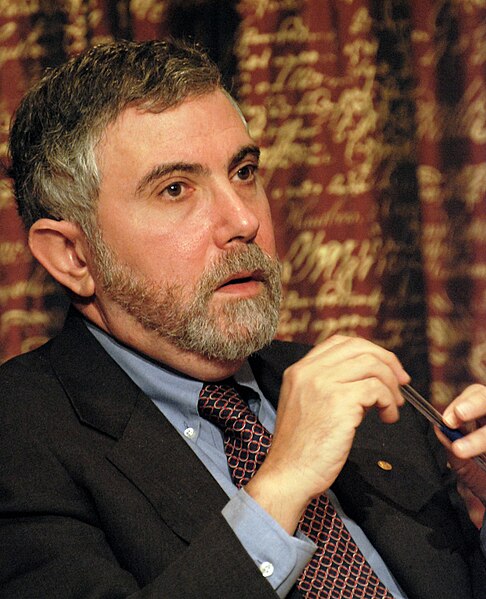
There were a lot of good articles and posts I came across this week — so brace yourself…
1. The American Power Act. David Brooks makes the case for progressive reform — specifically the American Power Act regarding climate change:
When you read that history, you’re reminded that large efforts are generally plagued by stupidity, error and corruption. But by the sheer act of stumbling forward, it’s possible, sometimes, to achieve important things…The energy revolution is a material project that arouses moral fervor — exactly the sort of enterprise at which Americans excel.
Matt Yglesias had earlier this week critiqued Brooks (among others) for taking the exact opposite stance of the one he was adopting here:
Oftentimes in the Obama Era the difference between “reasonable” conservatives (David Brooks and Greg Mankiw often leading the charge) and reasonable liberals has been that reasonable liberals look at flawed legislation that would improve on the status quo and support it while “reasonable” conservatives look at flawed legislation that would improve on the status quo and oppose it, while claiming to support alternative flawed proposals that they don’t actually lift a finger to organize support for within their own ideological faction.
2. Inequality, social mobility, and the American Dream. The Economist had a good piece that can serve as a starting point for a post I’ll be writing soon on inequality, social mobility, and the American dream:
The evidence is that America does offer opportunity; but not nearly as much as its citizens believe.
Parental income is a better predictor of a child’s future in America than in much of Europe, implying that social mobility is less powerful.
3. The Science of Life. Jonah Lehrer for Seed magazine has a brilliant piece on how cities are like living organisms. As a side matter, he notes this beautifully poignant data point:
[A]n animal’s lifespan can be roughly calculated by raising its mass to the 1/4 power. Heartbeats scale in the opposite direction, so that bigger animals have a slower pulse. The end result is that every living creature gets about a billion heartbeats worth of life. Small animals just consume their lives faster.
4. Fine-tuning life. Gary Wolf for the New York Times Magazine explains how the accessibility of computers is creating data about every aspect of our lives — and of the efforts of some people to begin to catalog and find insights in their own data. Surprisingly, Lifehacker was never mentioned.
5. The Anthora Cup. Margalit Fox of the New York Times writes the obituary for Leslie Buck, the designer of the Anthora cup:
It was for decades the most enduring piece of ephemera in New York City and is still among the most recognizable. Trim, blue and white, it fits neatly in the hand, sized so its contents can be downed in a New York minute. It is as vivid an emblem of the city as the Statue of Liberty, beloved of property masters who need to evoke Gotham at a glance in films and on television.

6. Unified Theory of the Financial Crisis. Ezra Klein synthesizes various narratives into a unified theory of the financial crisis.
7. The Structural Deficit. Donald B. Marron provides a coherent and reality-based conservative look at America’s structural deficit. Absolutely a Must-Read.
8. The Financial Doomsday Machine. Martin Wolf dedicated his column in the Financial Times last week to describe the “financial doomsday machine“:
[T]he financial sector has become bigger and riskier. The UK case is dramatic, with banking assets jumping from 50 per cent of GDP to more than 550 per cent over the past four decades…The combination of state insurance (which protects creditors) with limited liability (which protects shareholders) creates a financial doomsday machine. What happens is best thought of as “rational carelessness”. Its most dangerous effect comes via the extremes of the credit cycle.
9. Realism on China. Stephen Walt explains his take on China’s strategic ambitions — and its inevitable rivalry with the United States and other regional powers.
10. The Tea Party & Immigration. Radley Balko explains his take on the widespread support among the Tea Party for the massive government power grab that is Arizona’s new immigration law:
It also makes a mockery of the media narrative that these are gathering of anti-government extremists. Seems like in may parts of the country they’re as pro-government as the current administration, just pro-their kind of government.
Coincidentally, I made that exact point about the Tea Party back in September 2009 entitled: These Protests Aren’t Against Big Government, But About Liberals Running the Government.
Worse, on the fiscal front, they’re total frauds. They have yet to propose any serious cuts in entitlements and want far more money poured into the military-imperial complex. In rallies, the largely white members in their fifties and older seem determined to get every penny of social security and Medicare. They are a kind of boomer revolt – but on the other side of that civil conflict, and no longer a silent majority. In fact, they’re now the minority that won’t shut up.
More and more, this feels to me like an essentially cultural revolt against what America is becoming: a multi-racial, multi-faith, gay-inclusive, women-friendly, majority-minority country.
11. Sovereign Debt Crisis. Felix Salmon and Paul Krugman are both very pessimistic about how Greece will get out of this crisis — and what it means for the global economy.
12. Lady Gaga’s Ambition. Brendan Sullivan for Esquire chronicles the life and ambitions of Lady Gaga:
“There is a musical government, who decides what we all get to hear and listen to. And I want to be one of those people.” The girl who said that didn’t yet have the number-one hits (although she had already written most of them).
She was not yet the creative director of the Haus of Gaga, which is what she calls the machine of more than a hundred creative people who work for her. She didn’t make that statement in an interview or from the stage. She made it in 2007, when she was a go-go dancer sewing her own outfits and I was her DJ. She wrote it in one of my notebooks…
Lady Gaga is a student of fame, and the fame she studies most is her own — being famous seems to both amuse and fascinate her.
[1st image by me; 2nd image by LarindaME licensed under Creative Commons.]






